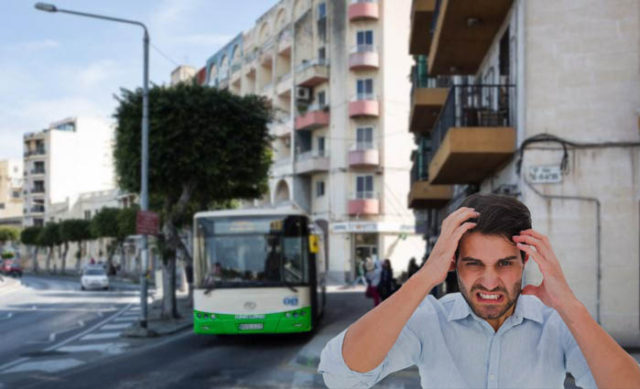An English expat who recently moved to Malta is suffering from post-traumatic stress disorder after attempting to form an orderly queue.
27-year-old Tom Hutchinson moved to Malta from the UK to start a new job one month ago.
At the start of his second week on the island, he attempted to catch an early morning bus from his flat in Msida to his workplace in Sliema.
“I got to the Kulleġġ stop 15 minutes before my bus was due. At the time I was the only person there. ‘Lucky me,’ I thought at the time,” Hutchinson told Bis-Serjetà.
“As the bus pulled up outside the pastizzeria, I got out my Tallinja card and approached the door. But then out of nowhere this elderly woman nudged past and tried to get on before me.
“After getting over the initial shock, I assumed she had poor eyesight and politely told her I was there first, to which she replied, ‘Welcome to hell, son’ and stepped onto the bus.”
Hutchinson described how he was left stunned as more and more Maltese people skipped ahead of him.
“They just kept coming from all directions, jostling me out of the way. It felt like they’d been hiding underground, waiting to strike. Nothing I’d experienced back home had prepared me for this. The last thing I remember is that the world felt like it was spinning.”
Just as he was about to faint, another expat dragged him to safety.
“I’m still getting flashbacks and I can’t sleep. Why do you people find it so hard to get in line? Did you learn nothing when you were a colony?” the Englishman cried before breaking down in tears.
Dr Stephen Agius, a psychiatrist who specialises in treating bus-induced PTSD in English people, believes that both the British and Maltese governments should do more to prepare expats for the chaos they would be facing on a day-to-day basis.
“You have to understand that, for English people, queueing is instinctive as breathing, because they’re more like robots than actual humans. So when they come here and realise that most Maltese people think that ‘queue’ is just the 17th letter in the alphabet, their brains just can’t handle it,” he said.
Dr Agius explained that the most effective treatment he had found so far was to administer copious amounts of tea intravenously.










